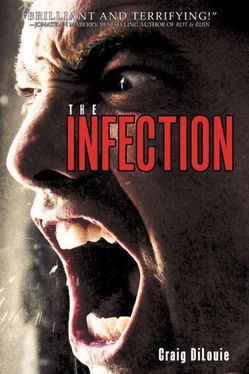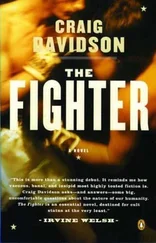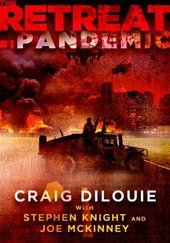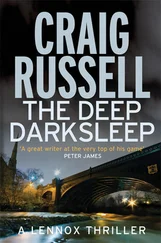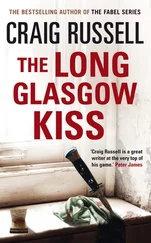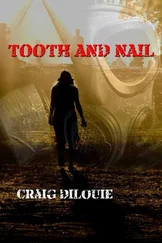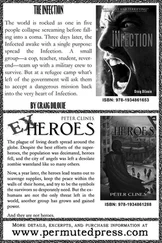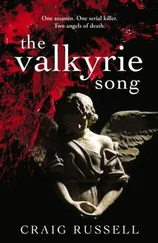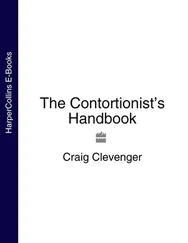The signs of violence were everywhere in this place. There were as many Infected lying on the ground as those who were not. His congregation had put up a fight—for their children and their sanctuary. The massive wood cross mounted behind the altar, the symbol of his faith in a divine sacrifice that had made life everlasting possible, loomed without potency over the carnage. Rage boiled up inside him. Infection had invaded and defiled this holy place. Infection had raped his wife’s blood. And he, personally, had not been touched.
Dawn brought the singing mob marching down the street out of a haze of smoke, sweeping him along. Middle-class suburbanites carrying shotguns and baseball bats and crowbars and kitchen knives and garden tools. They shouted and sang and waved banners proclaiming: we are the majority and defend our homeland and we shall not be moved. One carried a Bible and a large wooden cross. There were hundreds of them. The vanguard roared and dragged along eight Infected, who snapped and struggled against handcuffs and ropes tied around their necks. The men stopped in the middle of an intersection, threw the ropes over the traffic signal, and promptly began hauling the Infected kicking and gasping into the air. Paul pushed his way through the clapping mob for a better look until he was satisfied that Sara was not one of the victims. The air smelled like smoke. The Infected hung by their necks, jerking and twitching until they died. The mob cheered, some shooting at the corpses with their guns, others singing “The Star Spangled Banner” until everybody joined in, tears running down their cheeks. Paul was finding it hard to breathe. Several people noticed his clerical collar, shook his hand and began shoving him to the head of the column, chanting, “Bless us! Bless us!” A man with a mullet and a hunting bow, standing on the hood of a car, pulled him up with one hand and clapped him on the back. Paul looked down upon the cheering crowd in anger and did not trust the Spirit. What could he say that they wanted to hear? Should he tell them that God was on their side and approved of them murdering their brothers and sisters in broad daylight? Should he rouse them to torture and murder more of them with a hymn, maybe “Onward, Christian Soldiers”? Then he realized how scared they all were. The faces looked up at him hungrily; if ever they needed the strength and hope of Christ’s love, it was now. They were quiet now except for the cries of their babies. A pair of military jets roared overhead in the gray, smoky sky, followed by the boom of distant explosions. His heart opened. He raised his hands and blessed the mob.
“Your war is just,” he told them.
For a war to be truly just, its soldiers must kill with love, not hate, he thought. This was perhaps the first war in history where the combatants killed those they loved most.
People at the edge of the crowd began to scream. Infected were rushing out of nearby lawns and gardens into their midst, punching and biting. Shotguns and handguns roared in a motley cluster of shots, followed by triumphant shouting. Several people began trading punches over a bitten and newly Infected teenage girl lying twitching on the ground.
“Brothers and sisters,” Paul sang to them. “The Lord is with you. Do not be afraid.”
More Infected ran into the crowd, sending tremors of panic rippling through it. Some people ran away while others huddled closer together for protection. They stumbled over the newly Infected that lay twitching under their feet. A swarm arrived howling, and the mob began to break and tear with screams and gunshots and running feet. The fighting went on and on, the mob slowly dissolving like a wounded whale surrounded by sharks, flailing and dying one bite at a time. Soon, Paul found himself alone, watching the last clumps of people throw away their banners and flee, abandoning dozens of bodies on the ground. A small knot of fighters made a stand in a smoky haze, shouting at each other and firing their shotguns, until the Infected overran them.
Paul opens his eyes and is back in the hospital chapel, his face upturned towards the ceiling.
He offers a silent prayer for the dead and then sings aloud in a rich baritone voice, “Amen, amen, ah-ah-men.”
The other survivors stare at him wearing stricken expressions. Wendy wipes her eyes with the palm of her hand. Paul wonders if he said something while reliving that horrible day so vividly. He realizes his own face is wet and that he has been crying. He realizes that he was not singing at all. He was moaning. He did not remember what happened so much as relived it. But he cannot remember what happened afterwards. The fighters made their stand and they died in the smoke. Then nothing more.
♦
They all know about flashbacks. The experiences are so real, so visceral, that they can swear they have discovered a legitimate form of time travel. But unlike the type of time travel one might find in, say, the movies, with this type of time travel, they cannot change the outcome. They are doomed to relive the past repeatedly without being able to change it. And no matter how many times they visit the past, they will never truly comprehend it.
♦
The survivors enter the gift shop guns first, clearing it the way Sarge taught them—fanning out along the walls and circling back to the door.
“Clear,” they sound off, then start looting.
Ethan is again struck by the sensation that the world has become a giant museum dedicated to the day the world ended. The magazines and newspapers sitting in their racks still trumpet dramatic headlines about the Screaming. He runs his fingers over the greeting cards, pauses in front of a selection of stuffed animals and shiny balloons that proclaim it’s a boy! and feel better soon! and happy mother’s day!
Behind him, Wendy opens a dead refrigerator and begins emptying its bottled water and juices into cloth shopping bags packed onto a wheelchair, which they are using as a cart. Paul lights a cigarette with a tired sigh and sits on a stack of magazines. Todd scoops up candy and gum and shoves it into another bag. Anne prowls the other shelves with her flashlight, snatching up aspirin and nail clippers and deodorant.
Todd holds up his bag of candy, shakes it, and says, “Trick or treat.”
Ethan says, “Do you think they remember who they are?”
“You mean the Infected?” Todd says.
“Yes. Do you think their consciousness has been replaced, or that they are still trapped inside their bodies, forced to do things they don’t want to do by the virus?”
“I would hate to think they were still in there watching themselves attack people and being helpless to stop it,” Wendy says. “Either way, killing them is a mercy.”
“Maybe when the Infected dream, they remember who they are,” Todd says. “It would be nice to think that.” He quickly adds, “Or completely horrible.”
Ethan picks up a stuffed animal, squeezes it, and drops it to the floor. “I’m wondering if they still love us. If they recognize us and love us while they attack us even as we recognize them and love them while we kill them.”
Paul’s head jerks up and he stares at Ethan.
Anne says, “Nobody likes these questions.”
Paul says, “They’re the only questions worth asking.”
♦
The door to the mechanical penthouse is locked. Sarge and the crew go out to the Bradley to recover the demolition kit, which contains a few blocks of C4 plastic explosive and detonators. They are going to cut and mold a wad of C4 onto the doorknob, stick a detonator into it, let the wires run out until they get to a safe place, trigger the detonator, and BOOM. The soldiers have a casual but deep appreciation for the stuff. You can throw it and kick it and it will not blow up on you. Light it on fire and it burns nice and slow and you can heat an MRE on it if the area is properly ventilated, as Sarge did many times in Afghanistan. Mold it wherever you want it to go in whatever shape you want it, pop in the detonators, and you can take down buildings.
Читать дальше
